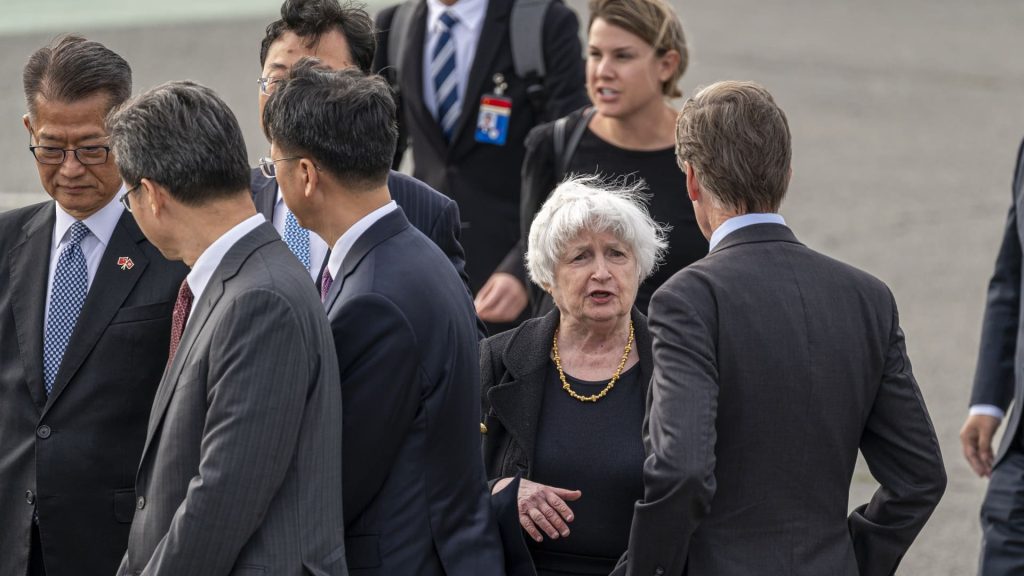U.S. Treasury Secretary Janet Yellen is set to visit China for four days of meetings with Chinese officials, marking her second trip to the country since the summer. The U.S. and China are looking to increase high-level communication in order to address misunderstandings that have developed over time. Yellen expressed the importance of ongoing dialogue at all levels during her visit, which will include meetings in Guangzhou and Beijing. Her itinerary includes meetings with Vice Premier He Lifeng, Premier Li Qiang, and other key officials, as well as economic experts, business representatives, and students and professors from Peking University.
During her meetings in China, Yellen is expected to discuss unfair trade practices and the global economic consequences of Chinese industrial overcapacity. China has come under scrutiny for its manufacturing capabilities, which have been supported by subsidies and policy measures that give Chinese companies a competitive advantage in selling products such as solar panels at lower prices. This has led to trade tensions not only with the U.S. but also with the European Union. Guangdong, where Yellen will hold meetings, is China’s top province for exports, with a focus on increasing productivity in sectors like new energy storage, biomanufacturing, and commercial aviation.
In addition to trade issues, Yellen will also address cooperation on countering illicit finance during her visit to China. This effort is aimed at combating criminal activities such as drug trafficking and fraud. Yellen will also discuss financial stability, climate change, and resolving debt distress in developing nations. This reflects a broader agenda of working together on shared challenges beyond trade and economic issues. Yellen will meet with Vice Premier He Lifeng, who plays a key role in China’s economic and financial affairs, during this visit as well as at upcoming international meetings in Washington, D.C.
The meetings between Yellen and Chinese officials come at a time of heightened tensions between the U.S. and China on a range of issues, including trade, technology, and human rights. The Biden administration has indicated a desire to address these issues through dialogue and engagement, although significant differences remain between the two countries. Yellen’s visit is seen as an opportunity to lay the groundwork for future cooperation and to build trust between the two nations. The outcome of these meetings could set the tone for the broader relationship between the U.S. and China in the coming months and years.
The focus on addressing trade imbalances and unfair practices in China’s industrial sector highlights the economic dimension of the U.S.-China relationship, which has long been a source of conflict between the two countries. By engaging in dialogue on these issues and exploring opportunities for cooperation on illicit finance and other shared challenges, Yellen’s visit could pave the way for more constructive engagement between the U.S. and China. The outcome of her meetings with Chinese officials will be closely watched for signs of progress and areas of potential cooperation in a relationship that is crucial for global stability and prosperity. As the world’s two largest economies, the U.S. and China have a responsibility to work together to address shared challenges and promote a more stable and prosperous global economy.















